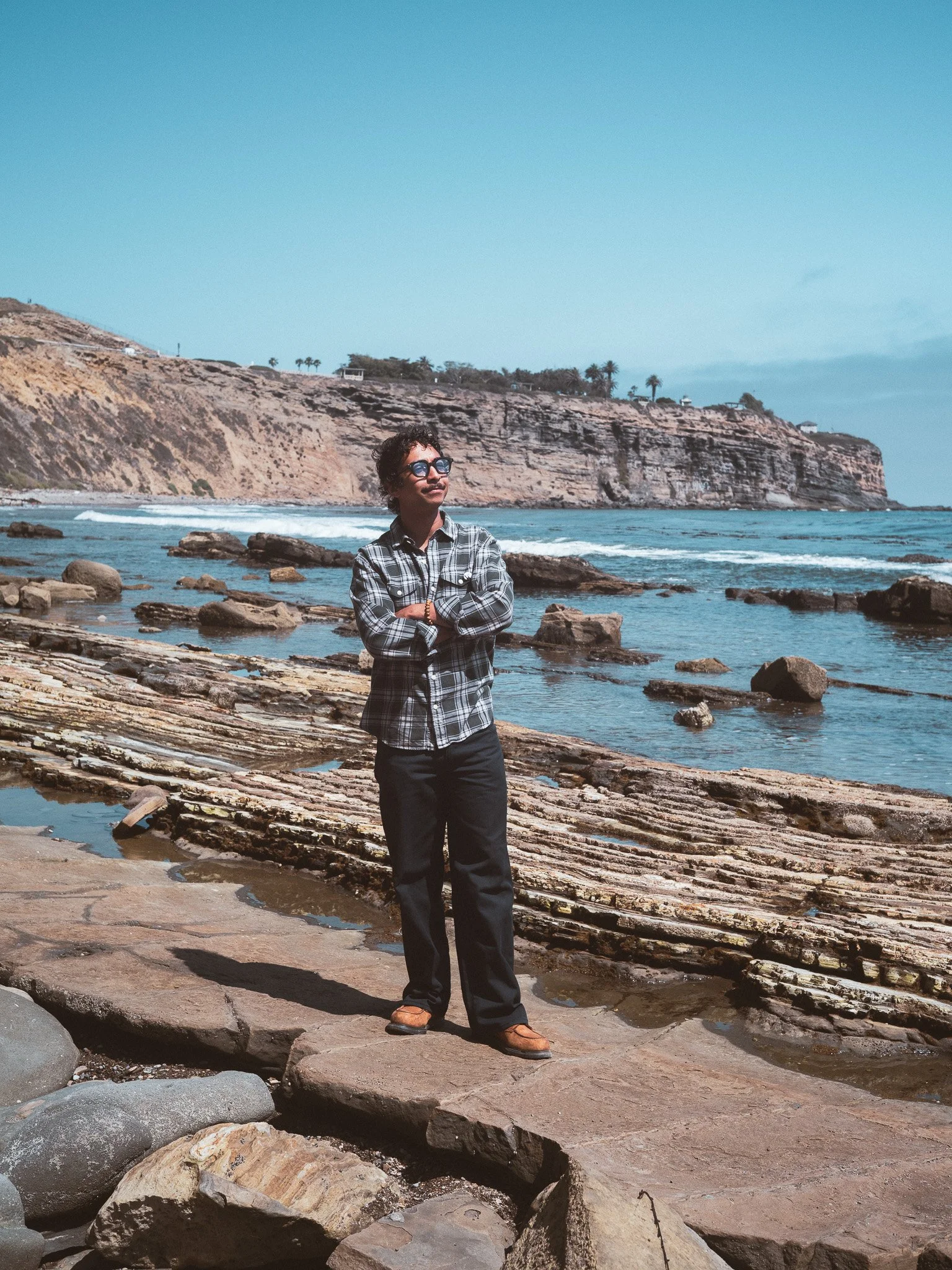Elijah Catalan,
Marine Researcher
What inspired your connection to the ocean and led you to pursue a career in marine science?
When I was in college at Howard University, despite being located near the coast, I unfortunately had few opportunities for engagement in coastal or marine science, which is typical at many HBCUs. It wasn’t until I participated in an undergraduate research program at UCLA which was dedicated to creating a safe space for underrepresented groups to explore marine science that I found a passion for the ocean and field-based research. As a Black person from a landlocked state (Ohio), I had never even considered marine science as a career. I didn’t learn to swim until college and before this program I had never met anyone from my background in marine science. The program was one of my most transformational experiences and it gave me the tools, mentorship, and confidence I needed to see a place for myself in a field where people who look like me are rarely represented. I have always felt a deep connection to nature and a curiosity about how the world works, but what truly drew me into ocean science was having the opportunity to develop a relationship with the water and witnessing firsthand how conducting science with my community could be used as a tool for justice and community empowerment.
Tell me about the specific research or work you’re currently focused on and why it’s important?
Biodiversity refers to the variety and distribution of all the different creatures found in nature. As humanity is an inextricable part of nature, there is no way to overstate the importance of biodiversity to sustaining the health, culture, and economies of our society. Biodiversity supports the fishing, foraging, gardens, and parks where communities come together. On our rapidly changing planet, it is vital to study and measure biodiversity in order to protect it. Measuring biodiversity, however, is difficult. In the ocean, researchers traditionally will measure biodiversity on SCUBA, literally diving into the water along a transect and counting fish one by one. Researchers also rely on data from fishing and trawling which is destructive to the environment and not viable for protected areas. My research uses an innovative methodology (environmental DNA or eDNA) which has the potential to complement and overcome challenges of traditional ecosystem surveying by using DNA found in environmental samples to determine which species are present or absent. Just like when we humans walk through a room and we leave behind skin cells, hair, etc- most organisms constantly shed some form of organic material in their environment which contains DNA. My work tests the application of eDNA to monitor various coastal restoration efforts around California and abroad. I conduct this research in partnership with local organizations, indigenous tribes, and underrepresented groups in order to support their environmental stewardship efforts.
How does this location where we shot hold significance for you and/or your work?
These tide pools north of Point Fermin Park are nearby two of my research sites. South of us, I used eDNA to study the impact of a dredging project which disturbed seagrass beds near the Cabrillo Beach boat launch ramp. North of our location along the Palos Verdes coast is an artificial reef I have been monitoring to determine its effectiveness in restoring kelp forest habitat.
What are your thoughts on the potential cuts to NOAA funding, and how do you think it might impact your work and the broader field of marine science?
Science is crucial to informing the protection of our environment and all the people who rely on it. The recent funding cuts to NOAA, NSF, and beyond will have long lasting impacts which diminish our ability to understand the world we live in and our impact on it. These cuts not only directly reduce the resources available to students and scientists like myself, but will undoubtedly and irreversibly affect our ability to address climate change, curb biodiversity loss, and protect the coasts and nature that we need and love.
